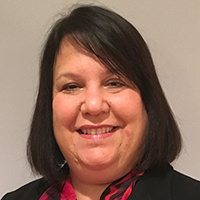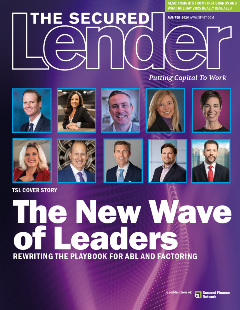
Kim Gordon
Managing Director, MONTICELLOAM, LLC
Kim Gordon is a managing director with MONTICELLOAM, LLC, where she leads the asset-based lending vertical. Kim has over 30 years of commercial lending experience, with a specialized focus in the healthcare industry. Prior to joining MONTICELLOAM, LLC, she was an SVP, senior credit administrator at Opus Bank, where she was responsible for all facets of credit oversight for the healthcare lending, structured asset-based lending, lender finance media and entertainment lending verticals within the commercial banking group. Kim has also worked as an SVP, director of credit at Monroe Capital, LLC where she helped develop a middle-market healthcare lending company specializing in revolving lines of credit and term loans. Before taking on her role at Monroe Capital, LLC, Kim acted as deputy chief credit officer for Ridgestone Bank, founding member and chief credit officer for Bridge Finance Group, Inc., and VP of Credit/Portfolio – Healthcare Division at FINOVA Capital Corporation. Kim received her BS in finance from the University of Illinois – College of Commerce and Business Administration. She is a longtime and active member of the Secured Finance Network and Turnaround Management Association- Chicago Midwest Chapter.
What advice would you offer to women just starting out in the industry?
Whether it is the beginning of your career or steps along the way, do not be afraid to ask questions. If you do not understand something, speak up. In my experience it is unlikely you are the only one who is confused or needs clarification. This will help you build your skill set and allow you to do a better job. I would also suggest being flexible and open to taking on projects and responsibilities outside of your comfort zone.
What do you know now that you wish you knew in the beginning of your career?
The importance of networking, maintaining, and cultivating relationships. If you have a strong network, you can take that wherever you go and rely on it in different facets of your career. It is important to identify with your organization, but it is also key to develop and sustain your own reputation.
What role has mentoring played in your career?
Very early on in my career I was lucky to have two male mentors who I believe strongly influenced my career and success. They gave me an opportunity to take on a role I was not completely ready for but were willing to teach me and guide me through the process. This laid the foundation for future opportunities.
How do you balance work/personal time?
It is not easy to do this, especially once you have a family. But one thing I always try to do is eat dinner with my family and then work after that if needed. In addition, I encourage people to ask for help personally or professionally, if you feel you need it to be successful.
How can commercial finance organizations attract and retain more women?
Organizations need to continue to support the entire team and offer roles to everyone who is qualified for the positions. Leadership in organizations should not make assumptions about whether to offer a woman a position because they think she may be too busy or have too many other responsibilities on her plate to be able handle the role. Let the individual make the decision and adjust accordingly, just as a man would do. The position should be offered to the most-qualified person. I also think organizations should be more supportive and open with employees talking about family and family responsibilities. This industry is fast paced and can be demanding. The job can still be done well, by a man or woman, and they can still attend a family member’s activity.
What effect, if any, has working remotely had on your career and/or your industry? What have been the challenges and how have you worked to overcome them?
I have been working remotely, at least a few days a week, since my oldest child was born 21 years ago. My mentor and manager had the foresight to see that you can be successful and execute on your role remotely. This progressive thinking allowed me to remain in the work force and continue to build my career. They felt it was better to retain a key employee and allow for flexibility, than to have me leave the organization. I think that to be successful with this set-up, you must be flexible with your schedule and be in person as needed, have a dedicated workspace, and create clear boundaries between your home and your home office.
The Secured Lender

SFNet's The Year Ahead Issue


